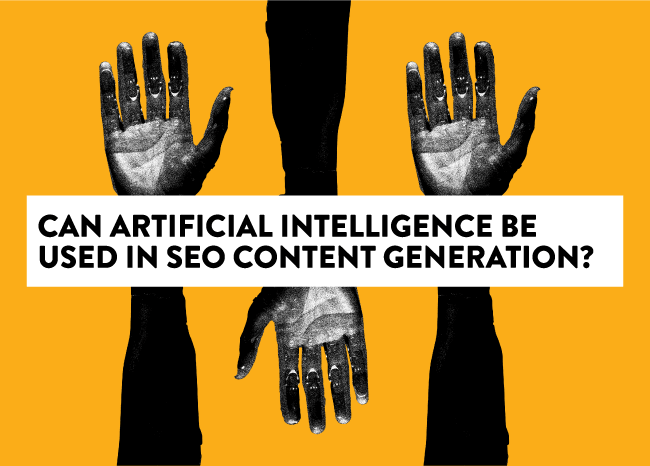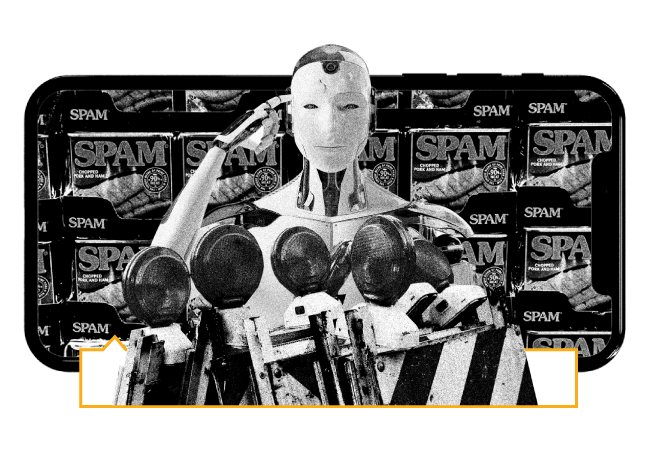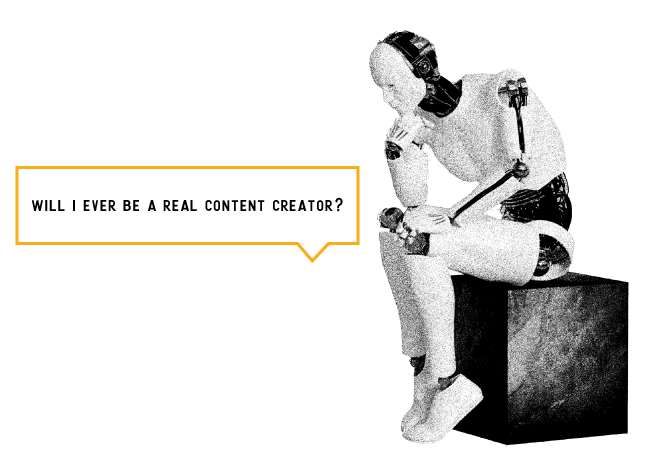

As artificial intelligence (AI) technology evolves, so do its options for practical application. AI is currently used by our smartphones to recognize voice commands when we want to quickly access information and apps, or by companies to analyze trends in data. However, recent advances have seen AI take on the role of an artist (or at least, a new tool/medium for artists to explore).
Through machine learning, an AI can be trained on millions of pieces of example text or imagery, and then generate its own content based on a user prompt. The AI will then output a picture or block of text based on the input prompt, often with convincingly human-generated results.
If you’ve browsed Twitter or Instagram in the past year, you’ve probably come across imagery or text generated by a computer. Perhaps you’ve seen an anachronistic image of a contemporary pop star in a historical painting, or read a ludicrous synopsis of an imaginary movie sequel. These were likely generated by AI using a machine learning algorithm.
How Does Machine Learning AI Work for Content?

Neural networks such as GPT-3 are referred to as machine learning AI. Essentially, they are trained on millions or even billions of text samples, analyzing the form, function, syntax, and more, so that they can essentially replicate a format with original content.
Because of this, AI is very good at copying patterns and producing compelling content. However, in order for content to be valuable for SEO purposes, it takes more than just being competently written.
Challenges AI Must Overcome

AI may seem like a useful tool for content generation, but in its current state, it still has some faults. Before AI can replace human writers, there are some challenges it must overcome.
Google Considers AI-generated Content to be Spam
In a Google SEO office hours hangout recorded on April 1, 2022, Google Search Advocate John Mueller discussed the company’s current views on AI-generated content. According to Mueller, Google considers automatically generated content to be spam with no value, and has determined that some AI-generated content fits into that category. This means if Google recognizes that a site is using AI-generated content, that site will see an impact on its ranking.
However, in this same exchange, Mueller claimed that Google currently had no way of detecting handwritten versus AI-generated content. Instead, he suggested that both AI, as well as the Google algorithm’s ability to detect it, would continue to advance in response to one another. Perhaps Google will eventually be able to detect AI-generated content. It is also conceivable that eventually, AI will become sophisticated enough to once again generate content that Google can’t recognize.
That may not be an entirely fair assessment, however. Google’s algorithm already serves to rank a page’s quality based on its content. Because of this, it is good at weeding out content that wasn’t written with users in mind. This means that, in some ways, it is already prioritizing good handwritten content over good computer-generated content.
AI-generated Text Sounds Unnatural
In its current form, AI-generated text can use phrasing and word choices that sound a little unnatural. Because an AI is trained on a specific set of text, it can do a good job of mimicking writing styles, but it may lack a coherent voice. It may also incorrectly use idiomatic expressions, or miss other considerations that are second nature to a human voice.
Even if these idiosyncrasies slip by Google, they will often jump out to readers and create an off-putting experience.
SEO Is Complex
Generating content that is valuable for your website’s users requires a number of considerations. Information must be organized with the reader in mind. You need to choose keywords strategically and place them naturally. You should design content carefully to incorporate EAT-boosting links to external sources. The overall flow of writing must meet high standards. And you must write the content with an intended audience in mind.
In short, writers need to be able to adapt to many different situations to deliver valuable content to users. Additionally, effective SEO requires a complex strategy with many different parts. Content generation itself is only one small part of a concerted effort.
You must also consider link building, traffic analysis, and the ever-evolving Google algorithm, all of which require agility and nuance and have a direct bearing on content needs. SEO is a team-based field that requires the efforts of many innovative individuals. AI is simply not ready to handle all these considerations.
The Future of AI in Content Generation

Making text that looks like a human wrote it is just the first step in a long journey toward quality content. Google’s algorithm continues to evolve to serve users with the best information for their queries. This means it favors thoughtful content that is hand-crafted for a specific audience and purpose. As such, AI in its current state is still far off from being able to replace content creators without significant editing and human intervention for quality control, strategy, and optimization.
However, machine learning AI can already analyze a piece of writing to make rudimentary grammatical or word-choice suggestions. Perhaps in the future, machine learning will become sophisticated enough to recognize form and help by making suggestions for overall content structure.
Furthermore, as technology increases, we will likely see AI being used in ways we can’t currently conceive of, just as the field of SEO continues to change.



